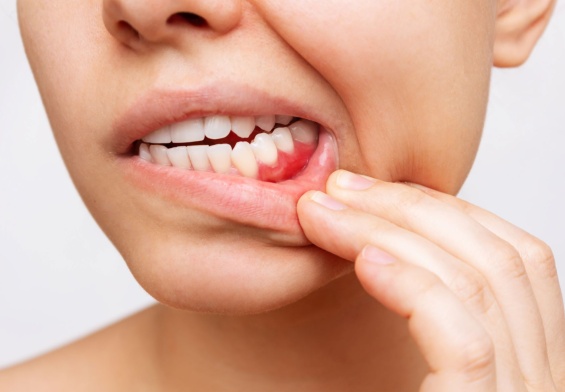Dental pain can come in many forms, ranging from mild discomfort to excruciating pain, which goes beyond your oral health to impact your overall quality of life. Whether it’s a sharp pain when chewing or a persistent ache that doesn’t seem to go away, addressing dental pain plays a huge role in maintaining healthy teeth and gums. If you’re in New Jersey and experiencing dental pain, understanding the causes and solutions will help you take the steps you need to fix them.
This article will discuss several common causes of dental pain and effective ways to address them. When you know more about these issues, you can seek the right treatment from a cosmetic dentist NJ who specializes in functional and aesthetic dental care.
Common Causes of Dental Pain
Tooth Decay
Tooth decay is probably the most common cause of dental pain. When bacteria feed on sugar in your mouth, they produce acid that erodes the enamel, leading to cavities. You’ll start to feel pain when the decay progresses to the more sensitive inner layers of your tooth. Feeling pain when eating, drinking, or even breathing cold air are signs you have a cavity. If you don’t treat them, they can get worse by growing and affecting more of your tooth. When this happens, invasive treatments like root canal therapy might become necessary.
Treatment Options:
- Fillings: A common treatment for small to moderate cavities.
- Root Canal Therapy: If the decay reaches the pulp of the tooth, a root canal may be needed to remove the infected tissue and relieve pain.
Gum Disease (Periodontitis and Gingivitis)
Gum disease, also known as periodontal disease, is another common cause of dental pain. In its early stages, it’s called gingivitis, and it tends to be painless but causes swollen, bleeding gums. Your gums will recede when it progresses into periodontitis, which exposes the sensitive roots of your teeth and causes you pain. In extreme cases, gum diseases like this can cause your teeth to become loose or fall out entirely.
Treatment Options:
- Scaling and Root Planing: A deep cleaning procedure to remove plaque and tartar buildup.
- Periodontal Therapy: Advanced gum disease might require treatments like laser therapy or surgery.
Tooth Fractures or Cracks
If you have a chipped, cracked, or fractured tooth, it’ll cause a lot of pain, especially when chewing or exposing it to hot or cold foods. Even tiny fractures can expose the inner layers of the tooth, leading to sharp, sudden pain. These fractures are usually caused by mouth injuries, biting on something hard, or teeth grinding.
Treatment Options:
- Dental Crowns: A crown can protect and restore the fractured tooth.
- Bonding: For smaller cracks, bonding may be sufficient to seal the tooth and keep it from being damaged further.
Dental Abscess
An abscess is a bacterial infection that forms at the root of the tooth or between the gum and tooth. It can cause pretty severe throbbing pain, swelling, and even fever. These are very serious infections that require immediate medical attention.
Treatment Options:
- Root Canal Therapy or Extraction: Depending on the severity of the abscess, a root canal or even tooth extraction might be needed to remove the infection.
- Antibiotics: In some cases, antibiotics may be prescribed to control the infection.
Teeth Grinding (Bruxism)
Bruxism, or teeth grinding, is a condition that tends to happen while you’re asleep and can lead to worn enamel, jaw pain, and tooth sensitivity. A lot of constant grinding over time can even fracture your teeth, which causes severe pain.
Treatment Options:
- Mouthguards: Wearing a custom-fitted mouthguard while sleeping can protect your teeth from grinding.
- Stress Management: Reducing stress through relaxation techniques may also help prevent bruxism.
Diagnosing Dental Pain
If you’re experiencing dental pain, it needs to be diagnosed accurately in order to be treated effectively. A cosmetic dentist NJ will typically use a combination of tools to find the source of the problem, including:
- X-rays: These help detect cavities, fractures, and abscesses that aren’t visible to the naked eye.
- Patient History: Your dentist will ask about the nature of your pain—when it started, what triggers it, and how intense it is.
- Physical Examination: The dentist will check for signs of decay, gum disease, and other abnormalities.
In many cases, a NJ cosmetic dentist near me can diagnose the causes of your dental pain while performing cosmetic aspects of dental care, so seeing one can improve your smile and oral health at the same time.
Solutions for Dental Pain
Once the cause of dental pain is identified, there are several treatments that can be used to fix them:
Fillings and Crowns
For cavities or fractures, fillings and crowns can restore the tooth’s structure and eliminate pain. These procedures are relatively quick and won’t require more extensive treatments in the future.
Root Canal Treatment
Decay or infection reaching the inner pulp of the tooth necessitates a root canal in most cases. This is a procedure that removes the infected tissue and seals the tooth, keeping it healthy and getting rid of the source of the pain.
Tooth Extraction
If a tooth is beyond the point of saving, it will likely need to be extracted. It’s totally understandable to be daunted by the prospect of having a tooth extracted, but it will relieve your pain and keep any infections involved from spreading.
Desensitizing Treatments
When your pain is caused by tooth sensitivity due to enamel wear or gum recession, desensitizing treatments like fluoride varnishes or specialized toothpaste can address the source of the issue.
Preventive Measures
Think about adding these preventive habits to your routine to avoid dental pain:
- Maintain Good Oral Hygiene: Brushing twice daily, flossing, and using mouthwash can help prevent cavities and gum disease.
- Visit a NJ Cosmetic Dentist Near Me: Regular dental checkups will detect and prevent dental issues before they escalate.
- Dietary Changes: Limiting sugary and acidic foods can protect your enamel from erosion and cavities.
- Use Mouthguards for Bruxism: If you grind your teeth at night, wearing a mouthguard can prevent damage and reduce pain.
Leveraging New Jersey Dental Pain Solutions
Dental pain can be debilitating, but timely treatment from a cosmetic dentist NJ can get rid of your pain and prevent further damage. Whether you’re dealing with cavities, gum disease, or tooth fractures, seeking professional care plays a huge role in getting immediate relief and your long-term dental health. If you’re experiencing persistent pain, don’t hesitate to reach out for New Jersey dental pain solutions. With the right care, you can restore your smile and maintain your oral health.
For those in search of NJ toothache remedies or cosmetic dentist services NJ, consulting a qualified professional can make all the difference in your dental health and confidence.




